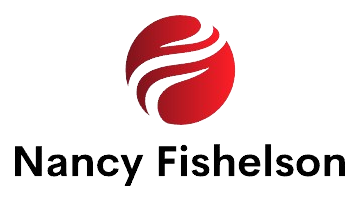Introduction
Content Marketing Brands: In an era dominated by digital interaction, content marketing has become the lifeblood of brand visibility, engagement, and loyalty. While many organizations invest in content to some extent, only a handful achieve distinction as content marketing leaders. These trailblazing companies have managed not only to attract attention but also to create meaningful conversations with their audiences. Through storytelling, value-driven assets, and customer-centric strategies, they offer lessons for brands worldwide. In this blog, we dive deep into the best content marketing brands, exploring the unique ways they connect with audiences and build sustainable relationships through content.
Red Bull: The Powerhouse Of Adventure And Storytelling
Red Bull’s content marketing efforts are nothing short of legendary. From producing full-scale extreme sports events to publishing high-energy video content on platforms like YouTube and Red Bull TV, the brand consistently proves that storytelling is about much more than selling products. Instead of focusing solely on the energy drink itself, Red Bull positions itself as a lifestyle brand, delivering adrenaline-packed narratives that resonate with a highly specific and loyal audience. Their strategy is built around high-value video content, athlete endorsements, and user-generated content that continuously fuels brand engagement. Through adventure-themed storytelling and a constant feed of fresh, thrilling material, Red Bull has created a global community that identifies with excitement, passion, and energy.

Hubspot: A Masterclass In Educational Content Marketing Brands
As a B2B marketing platform, HubSpot leverages educational content as the foundation of its strategy. Its blog, Academy, and research reports are widely recognized as industry benchmarks in inbound marketing. HubSpot’s content caters to marketing professionals and businesses seeking to improve their digital outreach. Rather than pitching products outright, the brand provides tutorials, templates, how-to guides, and certification courses that build trust and establish authority. This approach allows HubSpot to position itself as both a service provider and a teacher, developing long-term customer relationships rooted in value. Their content marketing funnel is both broad and deep, attracting traffic at the awareness stage and nurturing leads through in-depth, actionable resources.
Coca-Cola: Tapping Into Human Emotion
Content Marketing Brands: Coca-Cola’s brand storytelling focuses on creating emotional connections with audiences. Their “Share a Coke” campaign exemplifies personalized content that generates widespread engagement. Through user participation and emotion-driven narratives, Coca-Cola transforms its product from a beverage into a symbol of friendship, family, and community. Coca-Cola frequently uses nostalgic themes, celebrations, and human-centric stories to weave its content into everyday life. By combining traditional advertising with digital storytelling, the brand sustains a consistent presence across multiple platforms. The success of their marketing lies not in direct promotion but in their ability to make the audience feel something – joy, nostalgia, or connection.
Nike: Empowerment Through Brand Storytelling
Content Marketing Brands: Nike’s content strategy emphasizes empowerment, resilience, and social values. The brand crafts compelling video ads, social media campaigns, and athlete stories that inspire and uplift. Nike’s “Just Do It” slogan is more than a catchphrase—it’s a rallying cry. Their content often focuses on real people overcoming challenges, pushing their limits, and achieving greatness. Whether it’s a documentary on a Paralympic athlete or a collaboration with a social movement, Nike consistently aligns its content with values that matter to its audience. The seamless blend of inspiration, authenticity, and product relevance makes Nike one of the best content marketing brands in the world.
Spotify: Data-Driven Personalization And Virality
Content Marketing Brands: Spotify has mastered the art of using user data to drive content virality. Their annual Spotify Wrapped campaign is a perfect example of how data can be transformed into shareable, personalized stories. By highlighting listeners’ unique music habits, Spotify creates deeply engaging and viral content. The company also invests in music blogs, artist interviews, and podcasts that expand their presence in audio content marketing. Their strategy is centered around understanding the listener and delivering value through personalization and surprise. Spotify’s ability to turn passive listening into an interactive, community-driven experience positions it as a content marketing innovator.
LEGO: Co-Creation And Multi-Platform Storytelling
LEGO’s content strategy is an exceptional case of co-creation and multimedia storytelling. Through its user-generated content platform, LEGO Ideas, the brand allows fans to design new sets, fostering deep involvement and community ownership. LEGO also produces movies, short films, and educational content that extend the product experience beyond the physical bricks. From YouTube series to LEGO-themed games and digital magazines, the brand keeps its content varied, imaginative, and audience-driven. Its marketing seamlessly merges play, creativity, and family values, which enables it to stay relevant across generations.
GoPro: Visual Content By The Community, For The Community
Content Marketing Brands: GoPro’s marketing revolves around visual storytelling. With its customers at the core, the brand encourages users to share adventurous content captured with GoPro cameras. Their social media accounts are filled with breathtaking footage from around the globe—cliff diving, surfing, mountain biking, and more. GoPro’s strategy relies heavily on authenticity and community-driven content. Their YouTube channel features curated stories from users, with minimal scripted content. By championing user-generated visuals and amplifying real stories, GoPro not only showcases its product’s capabilities but also inspires others to create and share.
Glossier: From Community To Brand Ambassadors
Content Marketing Brands: Glossier’s rise as a beauty brand is deeply rooted in its community-first content strategy. The brand started as a beauty blog and evolved into a cosmetics empire, fueled by real customer feedback and social media interaction. Glossier invites its customers to be part of the product development process, frequently showcasing them in its content. Its Instagram feed is filled with real people, reviews, and behind-the-scenes footage. By turning customers into brand ambassadors, Glossier creates a sense of belonging that makes followers feel seen and valued. Their user-centric storytelling and authentic voice help maintain loyalty and word-of-mouth growth.
Netflix: Leading With Original Content And Cultural Relevance
Netflix isn’t just a streaming platform—it’s a content juggernaut. Their marketing team uses original content as the product itself, but their promotional strategy around shows is equally content-driven. From behind-the-scenes interviews and Instagram memes to immersive social media campaigns, Netflix ensures its shows live beyond the screen. They use audience data to promote content with pinpoint precision, ensuring high engagement and retention. Their social media handles often use humor and pop culture references that are timely and relatable. Netflix’s strategy goes beyond promotion; it creates a digital ecosystem where content, conversation, and community thrive.

Patagonia: Purpose-Driven Content That Inspires Change
Content Marketing Brands: Patagonia’s approach to content marketing is rooted in activism and environmental responsibility. Their blog, “The Cleanest Line,” along with impactful video storytelling and social campaigns, reflects their commitment to the planet. Patagonia rarely focuses on product specs—instead, they share stories about conservation, responsible business, and real-world environmental challenges. Their content educates, mobilizes, and calls for action, aligning deeply with their mission. Customers don’t just buy gear; they buy into a philosophy. Patagonia proves that content can be a force for change when values are consistently aligned with brand identity.
Apple: Simplicity And Emotion In Every Frame
Content Marketing Brands: Apple’s content marketing is elegant, emotionally resonant, and focused on user empowerment. Whether it’s a “Shot on iPhone” campaign showcasing user creativity or product launches that highlight intuitive design, Apple excels in telling stories of how technology enhances human life. Their marketing never overwhelms; it inspires. Apple also understands the power of visuals, music, and minimalism. Each campaign evokes aspiration and individuality, capturing hearts without excessive explanation. Their narrative focuses less on features and more on feelings—how it feels to create, explore, connect, and belong.
Tasty By Buzzfeed: Short, Snackable Content That Sticks
BuzzFeed’s Tasty has revolutionized food content by adapting it to the digital age. With fast-paced, visually appealing recipe videos, they’ve captured the attention of millions. The strength of Tasty’s content lies in its format—short, mobile-friendly, and instantly gratifying. These videos are tailored for social media consumption, particularly Facebook, YouTube, and TikTok. Tasty knows that audiences crave content that is quick, useful, and shareable. This approach has allowed them to build a large, loyal following, while also introducing branded partnerships in seamless ways.
Airbnb: Storytelling Through Travel Experiences
Airbnb uses storytelling to connect people across the globe. Rather than merely promoting accommodations, the brand focuses on the transformative experiences of travel. Their blog features travel guides, host spotlights, and cultural deep-dives that invite readers to explore places with curiosity and empathy. Airbnb’s use of video content and local photography humanizes each listing, turning it into a story rather than a transaction. Through curated experiences and thoughtful content, Airbnb inspires a sense of adventure while highlighting shared humanity.
Intuit: Financial Content That Educates And Empowers
Intuit, the company behind products like TurboTax and QuickBooks, stands out as a content marketing leader in the financial technology space. Rather than focusing solely on software features, Intuit crafts a content strategy aimed at empowering users with financial literacy and small business education.
Their blogs, guides, and video series provide actionable insights on topics like budgeting, taxes, entrepreneurship, and personal finance management. Intuit also invests heavily in creating resources tailored to different customer segments—from freelancers and small business owners to families and gig workers. Their strategic use of customer stories humanizes what could otherwise be a dry subject matter, making finance approachable and relatable. By positioning itself as a financial mentor, Intuit fosters long-term trust and encourages users to rely on its ecosystem of tools and resources.
Sephora: Beauty Content That Builds Confidence And Community
Sephora has mastered the art of blending commerce with content through its robust online presence, social media strategy, and beauty education initiatives. The brand’s YouTube channel and app-based tutorials serve as go-to destinations for makeup enthusiasts, offering in-depth product reviews, application tips, and beauty routines. Sephora’s Beauty Insider Community acts as both a forum and content hub where users exchange experiences, recommendations, and inspiration. This user-generated content adds authenticity to the brand’s voice, reinforcing trust and encouraging deeper engagement. In addition, Sephora invests in inclusive and diverse content, ensuring that all skin tones, identities, and ages are represented. The result is a brand that does more than sell cosmetics—it builds confidence and celebrates individuality through informative, community-driven storytelling.
National Geographic: Visual Storytelling At Its Finest
National Geographic is a long-established name that has evolved remarkably with the digital age, thanks to its stunning visual storytelling and in-depth journalism. Whether it’s a photo essay on endangered species or a video documentary on ancient civilizations, National Geographic’s content offers educational value while captivating its global audience. Their use of Instagram, in particular, is a benchmark for brands looking to use visuals for storytelling. With high-resolution photography and compelling captions, they transport users into the heart of every narrative.
The brand also produces high-quality short films, immersive web features, and interactive maps that deepen user engagement. What makes National Geographic exceptional is its ability to inform while invoking awe, allowing it to stay relevant across digital platforms and generations. Their commitment to science, exploration, and conservation enhances their content credibility and elevates their role as both a media outlet and a mission-driven brand.
Mailchimp: A Voice-Driven, Brand-Centric Content Universe
Mailchimp has successfully evolved from a simple email tool into a full-fledged marketing platform, and their content mirrors that journey. With quirky branding, humorous ads, and resources like podcasts and original series, Mailchimp’s content strategy is both bold and educational. Their “Mailchimp Presents” content studio creates mini-documentaries, founder stories, and customer interviews that entertain while adding value. They embrace experimentation and offbeat storytelling, which sets them apart in a crowded digital marketing space. Through bold aesthetics and a clear voice, Mailchimp carves a niche where marketing feels fun and human again.

Conclusion
The brands outlined above each demonstrate a unique approach to content marketing, yet they all share common attributes—authenticity, audience focus, and purpose-driven storytelling. Whether it’s Red Bull energizing thrill-seekers or Patagonia rallying for the environment, these companies lead with content that delivers consistent value and deep emotional resonance. They don’t just publish—they engage, educate, and inspire. By studying their methods, businesses can uncover valuable insights into creating content strategies that do more than inform—they connect. As content marketing continues to evolve, the most successful brands will be those that remain agile, innovative, and always aligned with the needs and passions of their audience.










